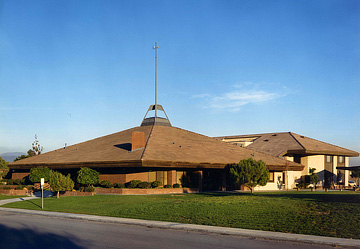My friend “Jeff” was the pastor of a church in Southern California. He and I became friends because we shared many of the same challenges as well as the same basic faith in Jesus Christ. I always liked Jeff because he was humble, earnest, and a deeply caring servant of God.
Jeff’s church was on the conservative side, both theologically and liturgically. They had hymns and an organ, proudly so. Nevertheless, Jeff wanted to add a few more contemporary touches to the worship services, like praise songs and a more informal time of prayer. So, one Sunday, he made these slight changes. His elders were not happy with Jeff, however. At the next board meeting there was a big fight, with two or three of the elders denouncing Jeff in demeaning ways. In the end, however, the board voted to sustain what Jeff had done, much to the dismay of the minority that had opposed him.
Two days later, while Jeff was sitting in his office at church, he received an ominous looking letter from a law firm in town. Reading the letter, he was distressed to learn that one of his elders was suing him in civil court because of the changes he had made in worship. I can’t remember the specific charges, but I do well remember Jeff’s great distress over what was happening to him and his church. He just couldn’t believe that one of his elders would actually sue him over a church matter.
Since Jeff shared his plight with me eight years ago, I’ve heard other things like this. Another pastor friend of mine was sued by a former church leader for failing to lead the church in the right direction. I’ve heard of pastors who have threatened to sue members of their church when they felt they were being mistreated. And I’ve watched with concern as individual churches and denominations rush to secular courts to solve church related property issues. Sometimes this happens in my own denomination as particular churches decide to part company with us.
The problem of Christians using the legal system to deal with conflicts with other believers isn’t new. In fact this was one of the problems facing the church in Corinth in the middle of the first century A.D. We learn from 1 Corinthians 6 that one member of the church had some sort of dispute with another member. But rather than work it out within the church, one of the believers sued the other in secular court. This sort of behavior was common among the wealthy members of Corinthian society. Winning in court was usually more a matter of preserving honor than getting a financial settlement. And being held in honor was the highest value among the Corinthian elites. (Photo: This is the platform (bema in Greek) where legal disputes in Corinth were publicly adjudicated. This is the place where, in Acts 18, Paul was charged in the presence of the Corinthian proconsul.)
 But the Apostle Paul was not pleased with what was happening in his church. Here’s what he wrote to the Corinthians:
But the Apostle Paul was not pleased with what was happening in his church. Here’s what he wrote to the Corinthians:
When you have something against another Christian, why do you file a lawsuit and ask a secular court to decide the matter, instead of taking it to other Christians to decide who is right? Don’t you know that someday we Christians are going to judge the world? And since you are going to judge the world, can’t you decide these little things among yourselves? Don’t you realize that we Christians will judge angels? So you should surely be able to resolve ordinary disagreements here on earth. If you have legal disputes about such matters, why do you go to outside judges who are not respected by the church? I am saying this to shame you. Isn’t there anyone in all the church who is wise enough to decide these arguments? But instead, one Christian sues another–right in front of unbelievers! To have such lawsuits at all is a real defeat for you. Why not just accept the injustice and leave it at that? Why not let yourselves be cheated? But instead, you yourselves are the ones who do wrong and cheat even your own Christian brothers and sisters. (1 Cor 6:1-8)
What is wrong with Christians suing other Christians in court? First, there should be sufficient wisdom in the church to solve conflicts. Notice that Paul assumes that disputes among Christians are the business of the church. If a Christian brother has a conflict with another brother, that’s not a private matter. It’s something that impacts the church and is part of the church’s rightful concern.
Moreover, for Christians to sue each other in secular court looks terrible to observing unbelievers. It certainly doesn’t commend the gospel of Jesus Christ if Christians sue each other. For that matter, the desire to win and get even doesn’t reflect the cross of Christ at all. Thus Paul can end his denunciation of Corinthian lawsuits with a rather shocking statement: “To have such lawsuits at all is a real defeat for you. Why not just accept the injustice and leave it at that? Why not let yourselves be cheated?” (6:7).
Tomorrow I’ll continue this discussion about how NOT to solve conflicts among Christians.

